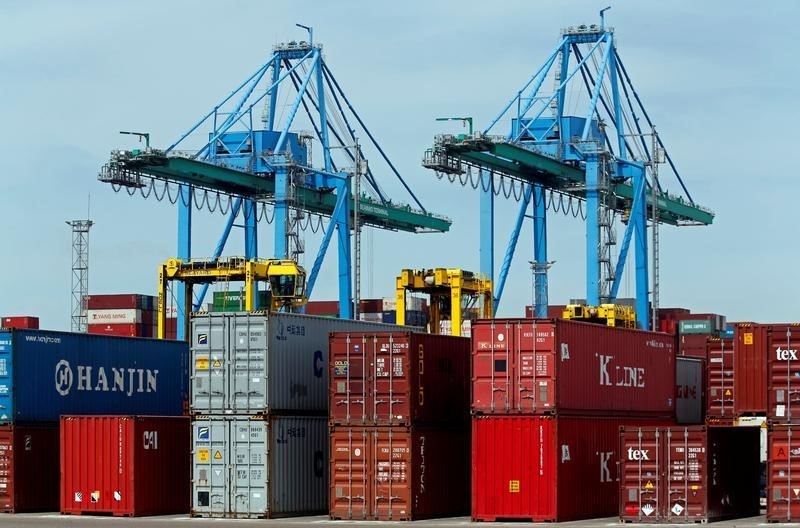PARIS (Reuters) - France's public deficit targets are at risk in the coming years because the government may fail to rein in spending fast enough, the IMF warned on Tuesday as it trimmed its 2017 growth outlook due to Brexit concerns.
In an annual in-depth review on the French economy, the International Monetary Fund stuck with a preliminary forecast for growth this year of 1.5 percent, in line with the government's own estimate.
However, it cut its outlook for next year to 1.25 percent from 1.5 percent previously, due to expectations that business investment would suffer from uncertainty caused by Britain's vote to leave the European Union.
Even a modest slowdown next year could make it harder for President Francois Hollande to get re-elected if he decides to run in a two-round vote next April and May.
Although lower interest rates seen following the Brexit vote would help offset the fiscal impact of weaker growth, the IMF said: "Risks to achieving the near-term fiscal targets have increased."
Looking further ahead, the IMF warned that the government's fiscal consolidation efforts would grind to a halt in coming years unless spending growth was kept slower than the rate of inflation, which France has failed to do in recent years.
Its efforts to improve its fiscal balance had leaned heavily on a recovery in economic growth, inflation and low interest costs, a strategy that has failed to deliver as growth has disappointed and inflation fallen.
As a result, the IMF forecast that the public deficit would fall to only 3.0 percent of economic output in 2017 from an estimated 3.3 percent this year.
That would just bring the deficit in line with an EU limit of 3.0 percent, but would fall short of the government's pledge to cut the deficit to 2.7 percent next year.

Against that backdrop, the IMF warned that it would not take much of an unexpected economic shock to blow France's fiscal strategy dangerously off course, pushing public debt to over 100 percent of gross domestic product.